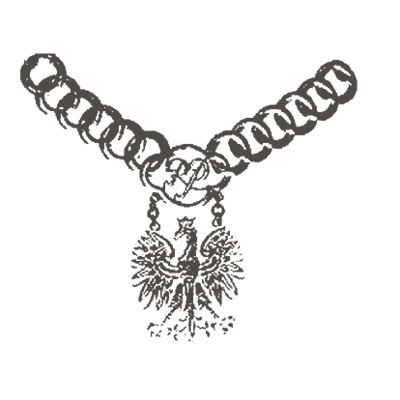Stanisław Drozd
News from Poland—Business & Law, Episode 13 (part 2): interrogation of a foreigner as a witness
12.01.2022
News from Poland, litigation
Stanisław Drozd and Konrad Grotowski carry on explaining what to expect if you are a foreigner testifying as a witness before the Polish civil court.

The dispute over the Polish judicial system and the security of legal rulings: On the common-law de facto doctrine of judicial competence
16.12.2021
varia
The legal chaos into which the Polish judicial system has been plunged generates huge practical problems and threats to the security of legal rulings. It casts into doubt the legality of hundreds of judicial appointments and the validity of thousands and thousands of rulings on which commercial and social life are based. One way to contain these threats could be the principle functioning in common-law countries known as the “de facto doctrine,” which under certain conditions allows the acts of judges and officers who were unlawfully appointed to be deemed nonetheless valid. Outside the common law, this doctrine could also be inferred from the constitutional principle of the rule of law as well as the fundamental principles of EU law.

News from Poland—Business & Law, Episode 13 (part 1): interrogation of a foreigner as a witness
08.12.2021
News from Poland, litigation
This time Stanisław Drozd and Konrad Grotowski explain what to expect if you are a foreigner testifying as a witness before the Polish civil court. The second part of the film will be published in January next year.

The real cause and the hard cure for the “regulatory chill” of international investment agreements
21.04.2021
international law
There is a growing concern among human rights advocates that states—in particular capital-importing ones—are not doing enough to protect their societies against human rights abuses related to foreign investments. The common conviction is that this has to do with the “regulatory chill” caused by international investment agreements (IIAs). States reportedly hesitate to pursue regulations and policies promoting human rights, in fear of being sued in the international arbitration provided for by IIAs for unduly interfering with foreign investors’ interests.

UEFA sanctions against Super League clubs and players may infringe competition law
19.04.2021
competition, sport
On Sunday, 18 April 2021, the whole football world was electrified by news that major clubs from England, Spain and Italy are finalising the construction of the “Super League.” These exclusive matches would be independent of the Union of European Football Associations and pose competition for the Champions League organised by UEFA.

Simplistic criticism of German ruling in ECB case only helps anti-EU populists
12.05.2020
other courts
Last week a judgment by the German Federal Constitutional Court (BVerfG) made headlines around the world after the country’s highest court refused to follow a preliminary ruling of the Court of Justice of the European Union. The decision attracted strong criticism. Critics accused the BVerfG of going rogue, undermining the EU system and providing support for the anti-EU populist agenda. The BVerfG judgment, although indeed controversial and issued at a difficult time, does not deserve this condemnation. Some of the critics’ unjustified opinions can do more for anti-EU populists than the judgment itself.

This pandemic will not reverse globalisation, but it will threaten the transnational rule of law
08.05.2020
coronavirus
It is a common concern among commentators on international relations that the COVID-19 pandemic will lead to deglobalisation. Indeed, the havoc wrought by the pandemic in the global economy raises some unsettling questions about the fragility of global supply chains, especially in critical industries, and about the interdependency of national economies. It is nudging sentiment towards reshoring, promoting domestic production and protectionism.

EU constitutional order forged before our very eyes
07.05.2020
other courts
On 5 May 2020 the German Federal Constitutional Court (Bundesverfassungsgericht or BVerfG) issued a much-noted ruling in a case involving the Public Sector Asset Purchase Programme of the European Central Bank. The judgment has caused a great stir, as the BVerfG expressly refused to comply with a ruling by the Court of Justice of the European Union. It was the first such instance in history, but its significance is the opposite of what is attributed to it by opponents of European integration.

Protection of investments during the pandemic
30.04.2020
coronavirus, litigation
The COVID-19 pandemic is paralysing the global economy, but it is not the virus itself preventing businesses from operating. States seeking to protect their citizens against danger are introducing unprecedented limitations on civil rights and freedoms, rendering operations in some sectors of the economy impossible. In other sectors, business has become more burdensome, costly or risky. This has generated a heated debate over who should bear the financial consequences of limitations imposed on businesses and the huge resulting losses.

COVID-19’s impact on player contracts and the right to just and favourable conditions of work and to peaceful enjoyment of possessions in sport
15.04.2020
coronavirus, sport
The COVID-19 pandemic has caused mayhem in the world of sport. An earthquake hit when top leagues suspended competitions or cut them short. Then the tensions only kept rising as one major tournament after another was cancelled. The climax was reached when the Tokyo Olympic Games had to be postponed. As a result, the industry has incurred multi-billion-dollar losses. And it is uncertain when the situation can be expected to improve.

“Flattening the curve” of post-pandemic disputes
26.03.2020
coronavirus, litigation
Justice systems around the world will soon be exposed to the same pressure as is currently crushing healthcare systems in the wake of the Covid-19 pandemic. What can judges and advocates do to “flatten the curve” and increase the resilience of the justice system as it awaits the post-pandemic wave of disputes?

Litigation financing in times of pandemic
23.03.2020
coronavirus, litigation
One of the more serious consequences of the pandemic will be a wave of business litigation. However, strong arguments and credible evidence are not enough to win a dispute. It also takes resources to pursue a lawsuit, and soon that may be particularly difficult to come by.
